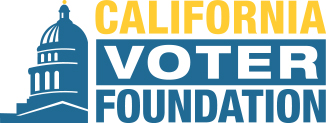From her second-floor office window in Medford, Oregon, elections administrator Chris Walker vividly remembers reading the unsettling words painted in big white letters on the parking lot below in late November 2020: “Vote don’t work. Next time bullets.”
Her heart sank, she recalls, wondering whether or when the threat would materialize. Former President Donald Trump had won her southern Oregon community, and despite his lie that the election was stolen, she never expected this anger.
While her office is nonpartisan, Walker, the Jackson County clerk, has been a registered Republican for as long as she’s been able to vote. She’s frustrated to see the amount of election misinformation from members of her party. The pressure from constituents has not let up over the past two years. In emails, she is called a crook and a criminal just for doing her job: running elections.
“It really was shocking,” she said. “We are normal, everyday people. We’ve been charged with an extraordinary task. We have to continue to do our work. We’ve not let it control what we do here.”
Walker is one of many election officials around the country who have faced violent threats and harassment since the 2020 presidential election, as Trump and his allies continue to perpetuate repeatedly disproven myths about voter fraud. This pressure, meant to exhaust and scare local officials into resigning, could usher in new election personnel who seek to skew results, election experts say.
Seeing this crisis unfolding, lawmakers in at least 10, mostly Democratic-run states are considering legislation that would increase criminal penalties for those who threaten election officials. Some measures also would add new digital privacy protections for election officials.
- - - - - - - - - -
The barrage of lies and misinformation surrounding the voting process has created an environment that fosters violence and harmful attitudes toward local election officials, undermining the health of American democracy, said Tammy Patrick, a senior adviser for elections at the Democracy Fund, a Washington, D.C.-based nonprofit that works to improve democratic processes.
“Even when conspiracy theories are debunked, even when the truth is told, even when election officials from both sides of the aisle stand with the results,” she said, “it’s continuing to have traction on the social media platforms and in private chats and around the dinner table that there’s still something questionable about the 2020 election.”
Those lies have led to recent violence, said Natalie Adona, assistant registrar of voters for Nevada County, California.
In January, a small group of unmasked residents supporting a recall effort against members of the Northern California county’s Board of Supervisors brushed past security and charged into the county’s election office, which had a mask mandate in place. As one of the residents attempted to push her way into the election office to demand an update on her submitted recall petitions, the door slammed into a staffer who was blocking the entrance, according to court documents.
The incident shook Adona. When she walks out of her office, she still looks both ways to make sure her path is clear.
“All I could think about was feeling trapped,” she said. “I was shocked. I was really scared. I did not know what was going to happen.”
Last week, a Nevada County judge extended a temporary restraining order against the resident who allegedly injured an election office staff member in the scuffle, barring the person from the office and from owning firearms for three years.
California lawmakers are considering legislation that would keep election workers’ addresses private, building on an existing Safe at Home program that protects domestic violence victims and reproductive health care workers.
“Our election officials are underpaid, understaffed, overworked and now under attack,” said Kim Alexander, president of the California Voter Foundation, a Sacramento-based nonprofit that has documented threats against election officials in the state and helped draft the legislation. “We have got to support them.”
She said many of these “vile and heinous” threats are being directed at women, who make up more than 80% of local election officials, according to the Massachusetts Institute of Technology Election Data + Science Lab.
Other measures are gaining momentum across the country. Washington state lawmakers passed a measure last week that would add criminal penalties for online threats made toward election officials. It also would make election workers and their families eligible for shielding their home addresses from the public. (Full Story)

